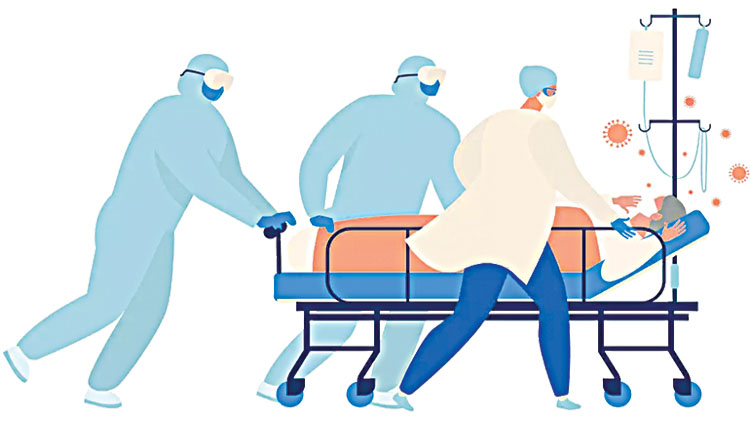MediBuddy has reported that Corporate India’s overall risk score remains low as per the proprietary scoring method. The concept of regular checkups for healthy individuals is growing day by day. Many employers are setting up annual health check-up mandates for their employees. Even at the community level, the utility of screening for diseases when someone is apparently healthy is being appreciated now more than ever before. Employee health is of paramount importance as healthy employees can contribute better owing to enhanced productivity. It is imperative to continuously monitor employee’s health and seek timely care to avoid any major concerns.
In lieu of the same, MediBuddy has reported that Corporate India’s overall risk score remains low at 1.8 on a scale of 10. The data is based on MediBuddy’s Annual Health Check-Up program which uses a proprietary scoring method that analyses the health check results with their respective weights, on a scale of 0-10., a range of 0-3.33 is low risk, from 3.34 to 6.67 is moderate risk and from 6.68 to 10 is high risk. The old axiom- “Health is wealth” is not just a cliché but has a lot of truth in it; but, can visiting the doctor only when one is unwell the right approach to a healthy lifestyle? It has been recommended by many medical practitioners that meeting your doctor from time to time is one of the many aspects of maintaining a healthy lifestyle. With regular check-ups, the doctor can identify these problems and suggest immediate treatment based on the individual’s condition. Some diseases can be very subtle and may not show their signs or symptoms until they reach the next level. This is why you need to see your doctor regularly, especially if you live a kind of lifestyle that can expose you to such risks. Productivity in corporates’ also take a hit because of the poor lifestyle choices of employees. To help address the issue & create awareness on the same, MediBuddy has partnered with Great Place to Work® India & launched India’s first and the largest study to identify “India’s Best Workplaces in Health and Wellness.” This assessment will enable organisations to measure the effectiveness of their wellness programs and know their Workplace Wellness Index.
One of the most important factors for the low risk is attributed to the fact that as soon as employees come on board for this program, their health is mapped, and solutions are provided. Over 15 lakhs employees have been mapped so far across various cities such as Bengaluru, Chennai, Mumbai, Pune, Kolkata, Delhi, etc. Mr. Satish Kannan, Co-founder & CEO, MediBuddy-DocsApp, said, “At MediBuddy, it is our vision to make a healthy India by providing healthcare access across the length and breadth of the country. The low-risk profile as stated in our data is a testimony to how we can prevent serious health concerns if timely treatment is sought out.” Furthermore, the overall risk stratification states that 93% of the cohort belongs to the low-risk profile and the remaining 7% in the moderate/borderline risk profile. Risk stratification identifies deviations from normal reference ranges and is further categorized into low (0-33%), moderate (34-67%) and high risk (68-100%), depending upon the variation percentages. A health check-up can be very helpful in the early detection of conditions that can be treated promptly. Some diseases can be very subtle and may not show their signs or symptoms until they reach the next level. This is why you need to see your doctor regularly, especially if you live a kind of lifestyle that can expose you to such risks.
Across the comprehensive 57 tests that make up a regular health check-up the Top 3 Risk Profiles are identified by combining the moderate and high risk percentages among the 6 major clinical systems namely Blood Picture, Cardiac, Diabetic, Hepatic (Liver), Renal (Kidney) and Thyroid. According to the data reported by MediBuddy, age wise 18-30 years & 31-40 years group ranks highest in the moderate risk zone respectively. The top 3 risk profiles identified as per the data are Diabetic Risk, Hepatic Risk & Blood Risk. in the diabetic profile; 13.4% and 13.1% employees fall under the High and Moderate Risk respectively, with 31-40 years age group and men, lead the given cohort in both moderate and high risk of developing complications of diabetes.
In the Hepatic Profile, 3.2% and 29.7% are in High and Moderate Risk respectively. The age group of 31-40 years ranks highest at moderate risk followed by the age group of 18-30 years for developing complications of liver ailments. In the Blood Profile, 10.5% are at High Risk and 78.9% at Moderate Risk of developing diseases related to blood disorders, among the given cohort. People from 18-30 years at moderate risk and individuals from 31-40 years age group are at higher risk of developing complications of blood-related disorders.
The contributing factors for these health issues are often Faulty Diet/Nutritional Deficiencies, Physical Inactivity, Unhealthy lifestyle, Stress/Work-life Imbalance, however, these can be modifiable basis your annual health check report. The Non-modifiable factors include Age, Gender, and Family History. The consequences of these are stated as Obesity, Sleep disturbances, Emotion health concerns, Compromised immune status, Pre-ailment State, and Overt Ailment.

